
Vet Mkononi
The problem
Currently, if farmers and pet owners want medical services for their farm animals or pets, respectively, they scramble online to find vets, as there is no single place they can check for vets nearby to assist them.
The same is true for vets. When they conduct medical visits to farms or pet owners' homes, all records are drafted in a book or on a notepad on the phone. Hence, it is hard to get a clean report of multiple visits.
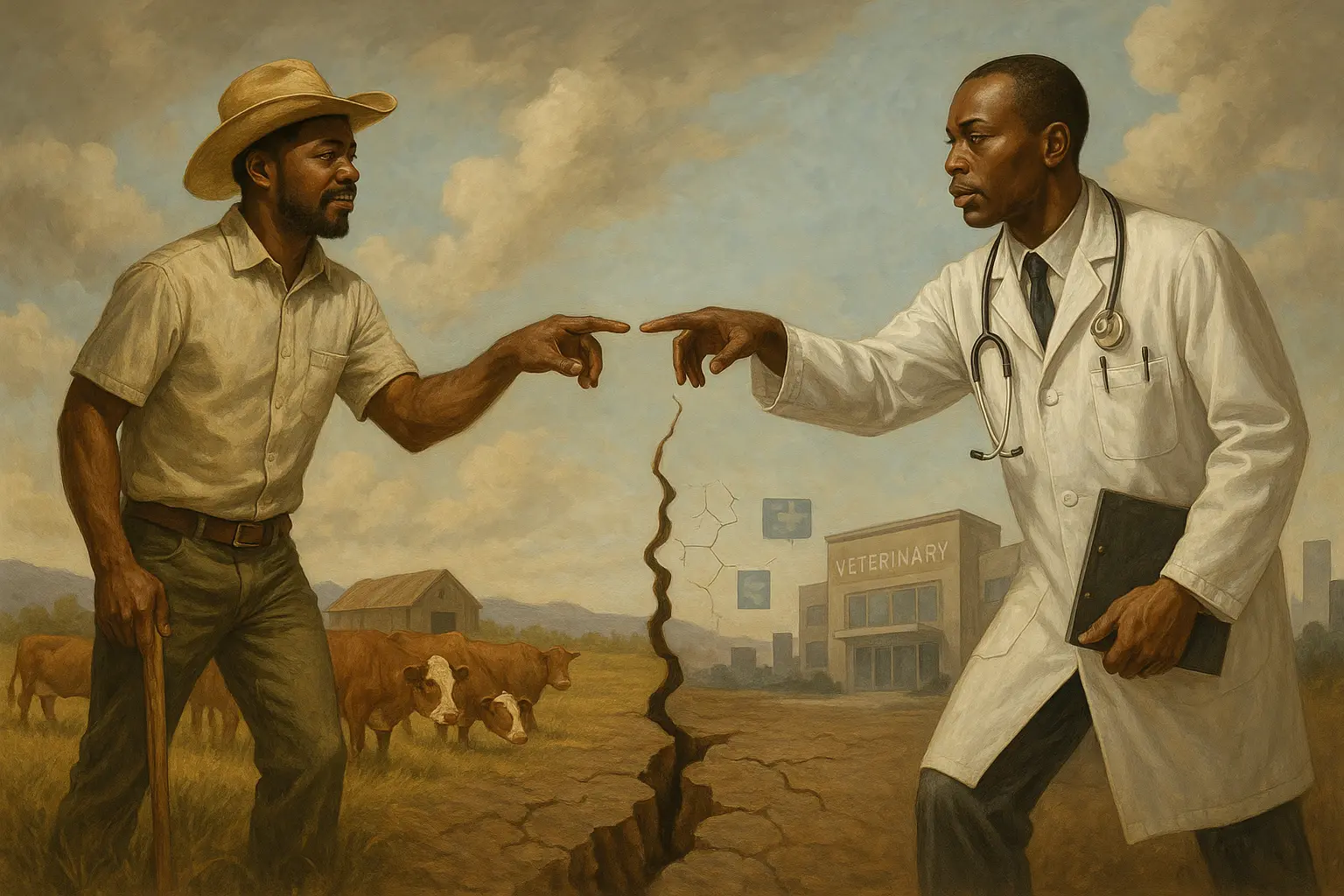
Is the problem worth solving for?
I had multiple conversations with my good friend and founder of Vet Mkononi, Joseph Nyugo, about this issue and how we could solve it. He shared valuable insights from his interactions with veterinarians, which gave me a solid starting point for the project.
We decided to kill two birds with one stone (coz why not?) and agreed that, besides providing vets with a solution to record their visits digitally, we should also create a platform for customers to find vet services within their region.
Deciding on the Minimum Viable Product (MVP)
Like any project, it's easy to get carried away and try to develop and launch everything at once. So we decided to focus on the vets solution first—testing, gathering feedback, and improving—before expanding into a marketplace where customers could book vet services.
This step-by-step approach turned out to be a game-changer, as you’ll see in the feedback phase.
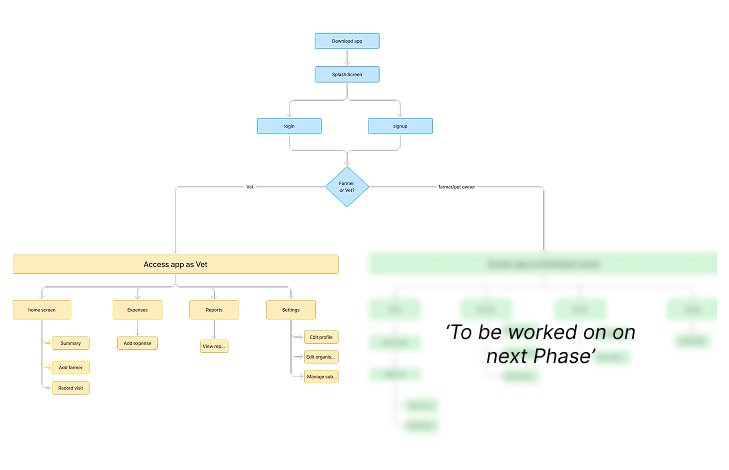
Designing the Solution
We started by understanding three key aspects:
- The User – Who are we building for?
- The Needs – What problems are they facing?
- What Can Be Shipped? – What’s feasible in the first phase?
1. The User
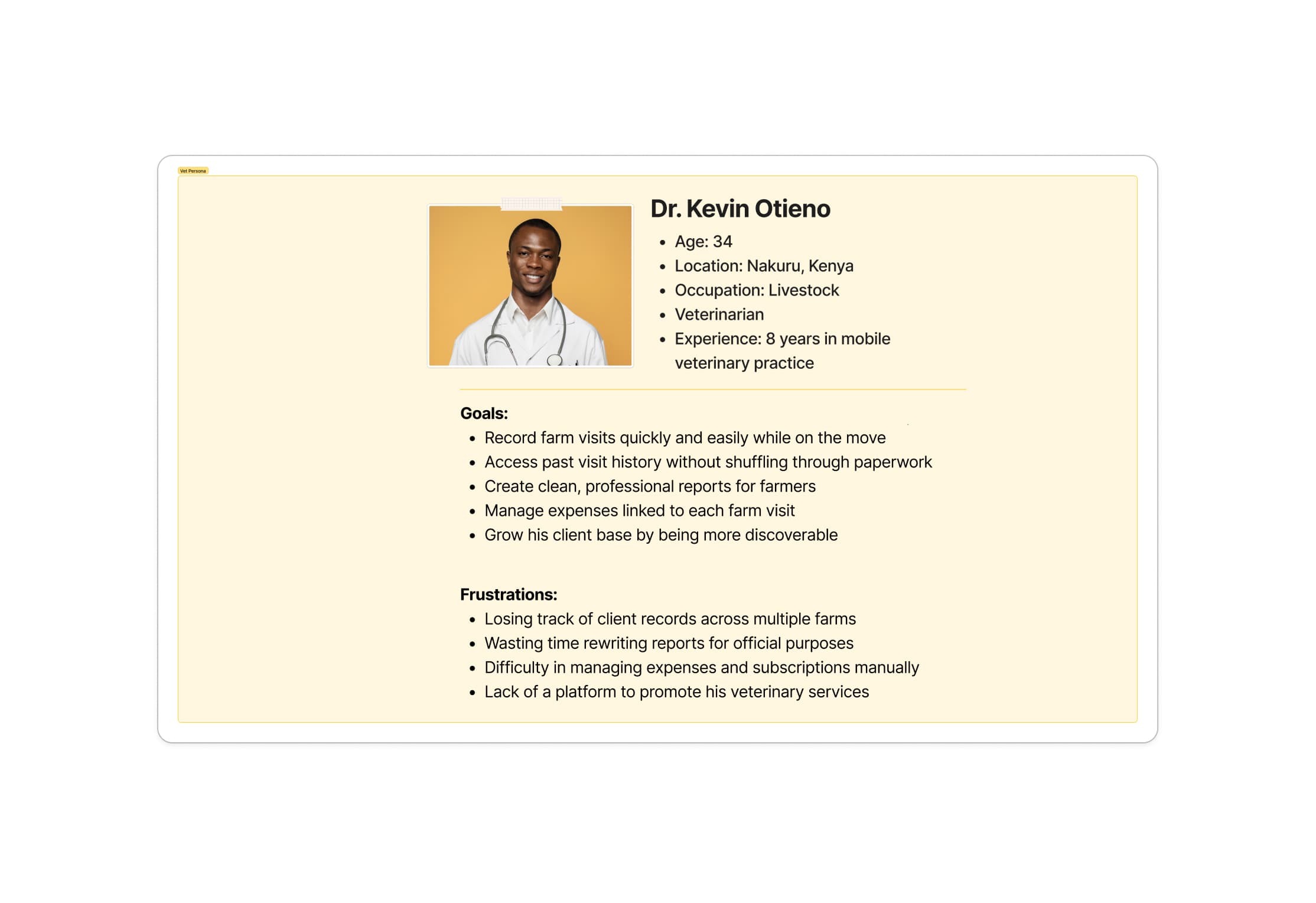
2. The Needs
We listed all the pain points veterinarians face and mapped out possible solutions for each.
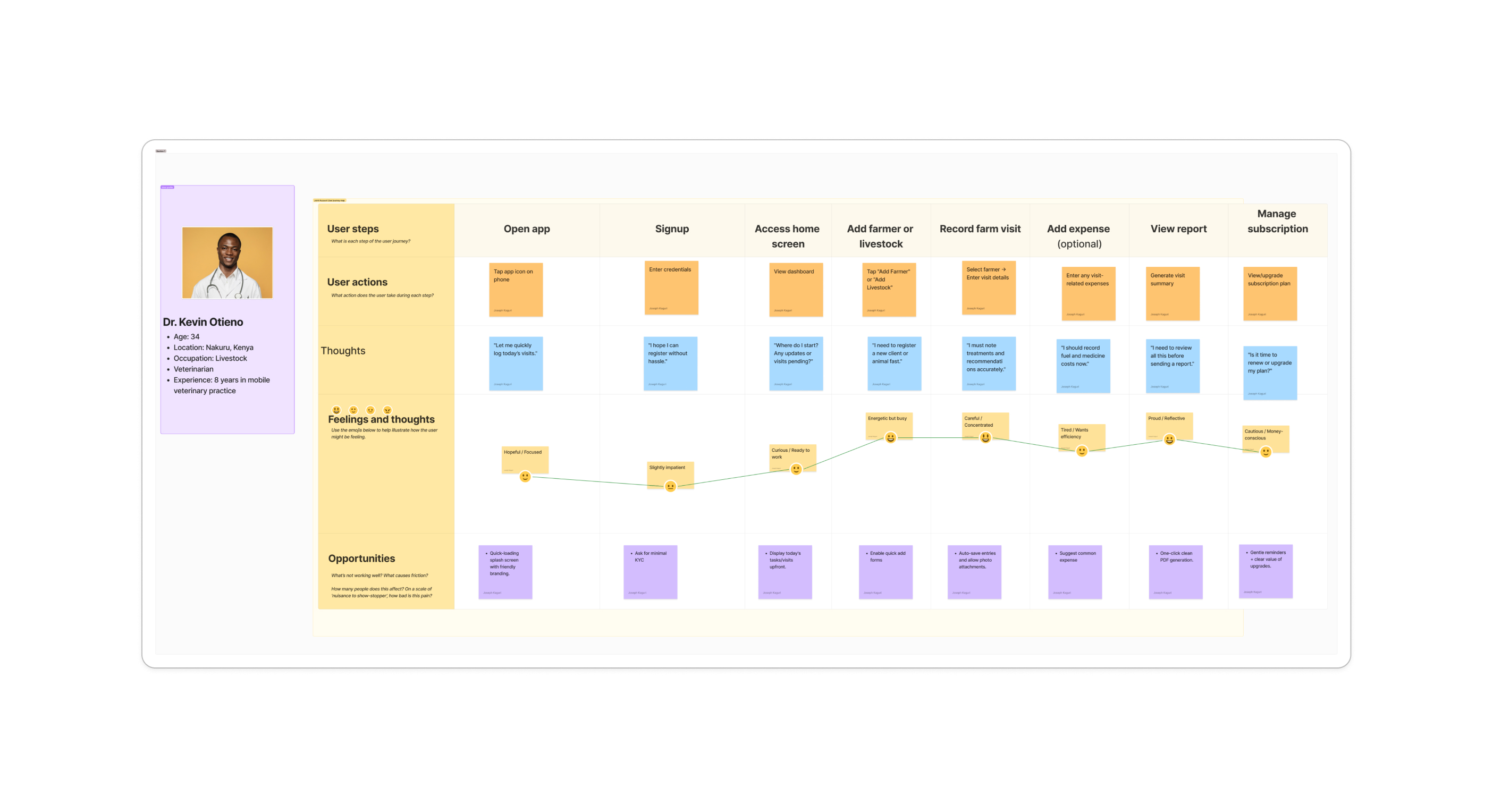
3. What Can Be Shipped and How?
We agreed to first launch the vet app and chose Flutter for development since it allows both Android and iOS users to access the solution.
Branding
We went through multiple iterations of the branding. Initially, the product was called Mvet, but we later renamed it to Vet Mkononi (which means "Vet in Hand") to emphasize easy access to vet services in Kenya.
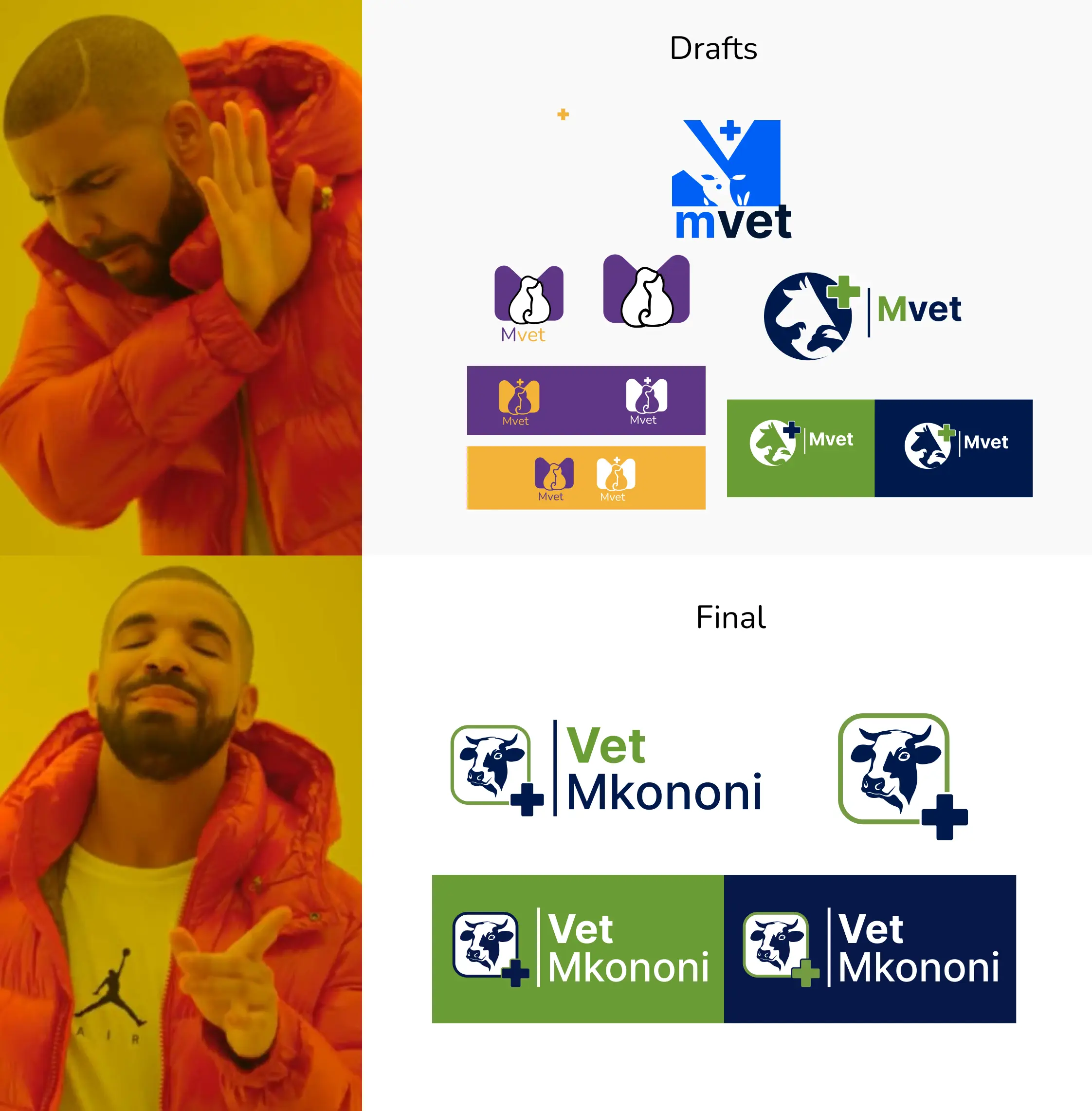
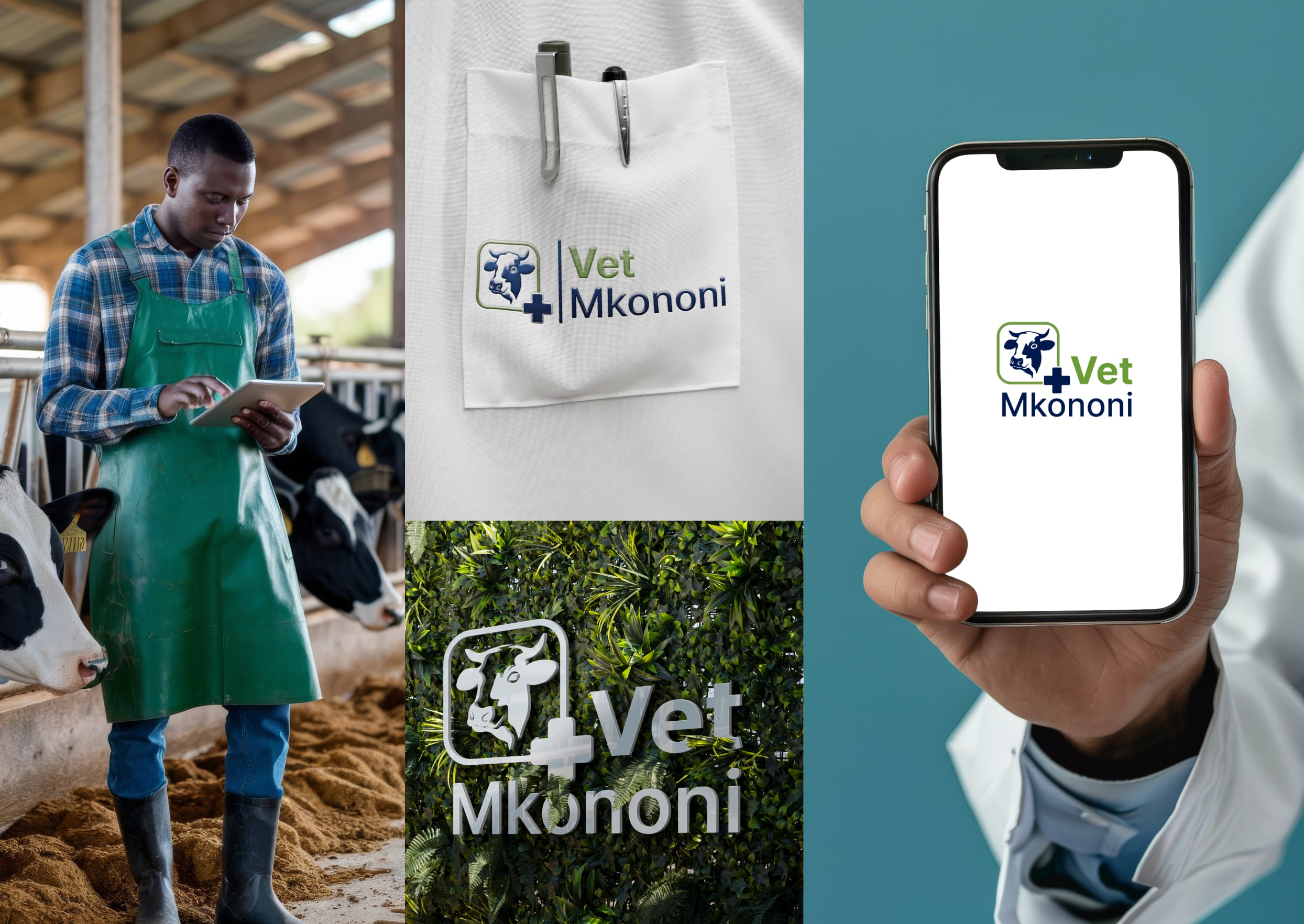
Product Design
As mentioned in the problem statement, vets needed a digital way to record the farm visits.
The design was straightforward:
- Sign up
- Add livestock details
- Record visits
These were the bare minimum features, ensuring a simple and user-friendly journey. If any upgrades were to be made, they would come directly from end-user feedback after launch.
Later on, we also introduced the app to the farmers and pet owners too. Now they can:
- View and select vets & their services
- Track vet visits animals & payments
- Track milk records
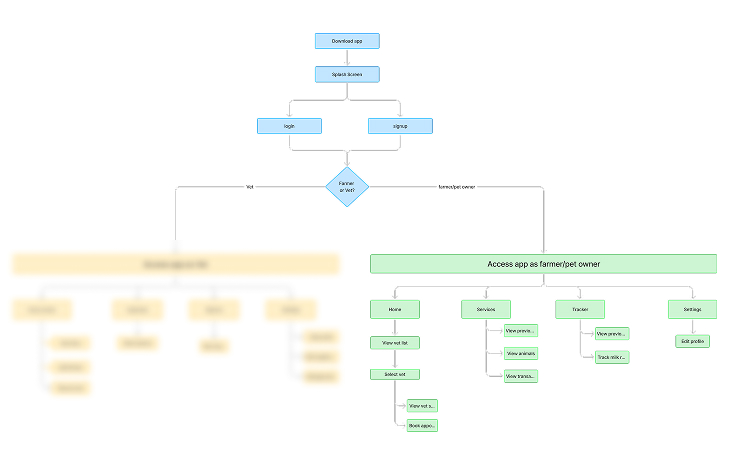
Improvements from Vet and Farmer Feedback
Working in an agile environment, we focused on delivering an MVP first, allowing end users to interact with the product and provide feedback. This approach made it easier to iterate and refine the solution based on real-world use.
Once the product was in the hands of farmers, they suggested valuable improvements, particularly around record-keeping. Launching version 1.0.0 with just the essential features enabled the dev team to collaborate closely with users, unlike the Waterfall method, which requires extensive upfront planning and implementation.
Lessons Learned
The philosophy of "Ship fast, fail faster" helped us launch a functional product quickly and cost-effectively. It’s an approach that more companies and corporates should embrace to bring products to market faster, while minimizing costs and effort.